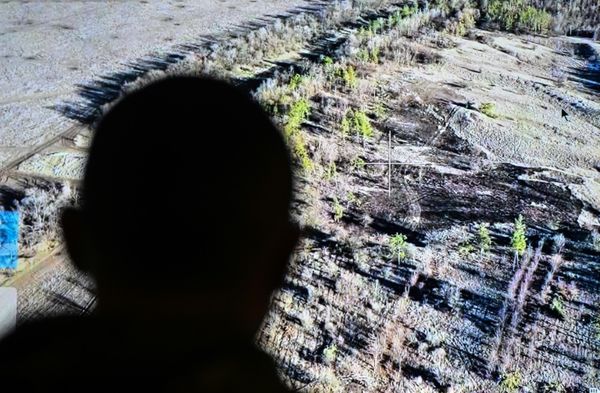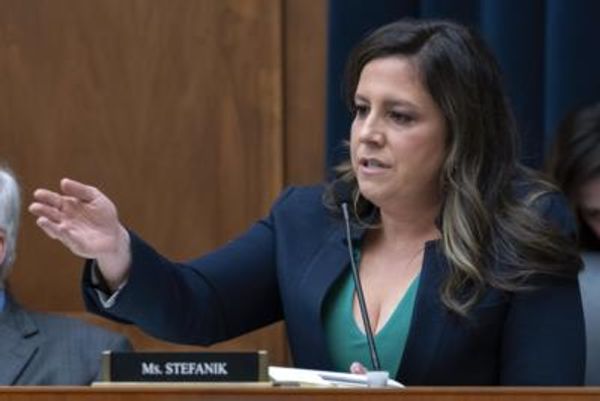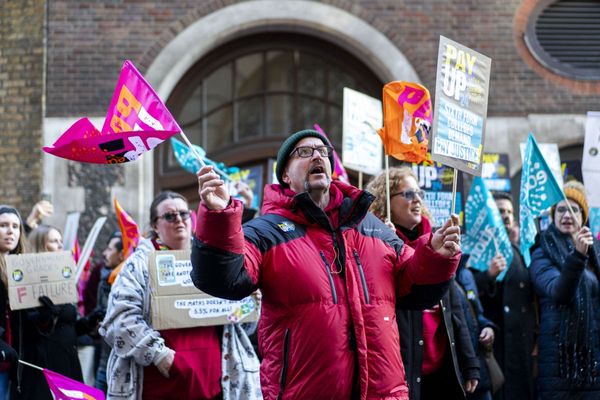
Moon Jae-in has been through a lot in his three and a half years as South Korea’s president: defused a potential war in 2017, brokered three meetings between Donald Trump and Kim Jong Un in 2018 and 2019, and led one of the most successful responses in the world against the coronavirus pandemic in 2020. But this time, his team may have finally met its match: Seoul’s real estate market.
Real estate is a sensitive political issue everywhere, but in Seoul it’s explosive. South Korea’s wealth has flowed into real estate to an unusual degree because there are few other options. The country’s domestic stock market is good but not great: The chaebol conglomerates are vastly overrepresented in the overall market (as of March, Samsung Electronics alone represented nearly 34 percent of the entire KOSPI market cap), making it difficult to have stable and diversified investments. Persistent corporate governance issues plaguing the chaebol sometimes lead to share price manipulation, undermining the confidence of public investors in the system. While investing abroad, especially into the red-hot U.S. stock market, is increasingly becoming more popular, the unfamiliarity as well as the foreign exchange rate fluctuation make the returns difficult to anticipate.
In contrast, real estate is intuitive: It is visible, it cannot disappear, and its value doesn’t go to zero as stocks can. The formula for a winning investment in real estate—centrally located, accessible to public transit—seems clear enough, especially in a country where half of the population lives in one metropolitan area. South Korea’s investors also remember the legendary returns from Seoul’s prime real estate when the Korean economy began growing explosively in the 1980s. In 1977, a 1,000-square-foot condominium in Apgujeong-dong, located in the heart of Gangnam, was approximately $14,000; in 2020, the same condo is worth over $2 million, a tidy return of 14,286 percent, or 330 percent in annualized return over 43 years. As a result, over 85 percent of South Korea’s household wealth in 2019 was in nonfinancial assets (which were mostly real estate); in contrast, just 35 percent of household wealth in the United States as of 2016 was in nonfinancial assets. The same figure for Japan was 43 percent as of 2015, as American and Japanese households tended to hold their wealth in the form of financial assets (such as stocks and bonds) rather than real estate.
South Korea’s unique jeonse rental system makes the investment into real estate even easier. For the uninitiated, the jeonse system may seem absurd: For the duration of the lease (typically for two years), the tenant puts down a massive deposit with the landlord, usually around 70 percent of the value of the home. The tenant makes no other payment to the landlord, who returns the entire deposit at the end of the lease. In essence, the landlord is borrowing money from the tenant at no interest. Instead of collecting a monthly rent, the landlord makes money by investing the borrowed deposit for the duration of the lease. This unusual system is a byproduct of South Korea’s period of rapid growth, a jury-rigged response to the times when a reliable credit check was impossible, tenants could not be counted on to make regular payments, and the ludicrously high return on capital in South Korea’s booming economy—the typical interest rate for a one-year certificate of deposit in the 1960s was well over 20 percent—could compensate the landlord for simply holding on to a sum of money. To this day, jeonse is the dominant form of real estate lease: In June, 71 percent of all lease transactions in Seoul were jeonse.
As South Korea’s bank interest rates came down to earth as its economy matured, clever investors devised a new way to generate return from the jeonse deposit: reinvest into real estate. For example, an aspiring landlord could buy a condo worth $500,000 with only $150,000 (i.e., 30 percent of the price) by lining up a jeonse renter first, who puts down $350,000 in deposit. Two years later, at the end of the lease, the landlord could sell the condo for $600,000 (a reasonable rate of appreciation in Seoul’s booming housing market), pay back the tenant’s $350,000 deposit, and make a profit of $100,000—a return of 66 percent over two years for the initial capital investment of $150,000. In a practice that came to be known as “gap investment,” enterprising landlords would run this process for multiple homes: same example but leverage the $350,000 deposit with another jeonse renter to buy a second condo worth $1.16 million and then realize the appreciation for the more expensive condo also. (The investment arbitrage is the “gap” between the price of the home and the jeonse deposit, which is typically 30 percent but can fluctuate between 10 and 40 percent.) In recent years, aggressive investors ran this scheme with hundreds of homes, creating an incredibly dangerous and entirely unregulated financial ecosystem. As soon as there was a downturn in the real estate market, a landlord’s bankruptcy could wipe out hundreds of people’s jeonse deposits, which often represented their life savings. In June 2019, for example, a real estate investor went bankrupt after having purchased 280 houses in Seoul’s Gangseo district in a gap investment scheme, destroying the life savings of his tenants. Even when the system is working as intended, there is a strong incentive to push housing prices ever upward in order to prevent a jeonse wipeout.
The cheap money made available through central banks’ response to COVID-19 has only worsened this trend. With a glut of liquidity created by unusually low interest rates, money flows into assets and drives up asset prices. In the United States, this increase is reflected in the stock market, which continues to climb despite the economic devastation of the pandemic. But in South Korea, where the investment asset of choice is real estate, the housing market is rising like mad. Since 2017, the average home price in Seoul has increased by 50 percent, the fastest pace in the world. Even a modest 1,000-square-foot condo in a middle-class neighborhood—say, Eunpyeong district on the northern edge of Seoul—could easily fetch over $1 million. This increase is more pernicious than the stock market bubble in the United States because the surge in housing prices is pushing young, first-time job holders out of Seoul, forcing them to commute for hours on crowded public transit to reach their jobs downtown. In order to afford the inflated jeonse deposit that climbed along with housing prices, young people often have to take out a loan, an additional burden on top of their student loan debt.
The Moon administration has proposed an all-available-options plan to curb this rise. In July, the ruling Democratic Party passed a host of real estate-related laws in a procedural blitzkrieg, aided by its giant majority position earned from the April parliamentary election. The revisions raise the taxes for nonresidential real estate investors. The top bracket for property taxes for those owning multiple homes was raised from 3.2 percent to 6 percent, real estate gains earned by corporations (as opposed to natural persons) will be taxed for an additional 20 percent, and the top bracket for gift taxes was raised from 62 percent to 72 percent, to prevent wealthier older people from giving money to their young children to invest in real estate in their names. The revisions also restrained gap investment and put a clamp on excess liquidity entering the real estate market by restricting loans made to people who buy a house without intending to live in it. The revisions also protect renters by giving renters an automatic option to extend the lease, which the landlord can decline only for certain enumerated causes. Rent increases on extending a lease cannot exceed 5 percent. All leases are to be reported to and recorded with the government, which has the effect of creating an automatic lien over the house for the tenant who made the large jeonse deposit.
The Moon administration and the Democratic Party are also addressing the long-term supply and demand issue for Seoul’s real estate. This month, the Ministry of Economy and Finance announced a plan to supply up to 260,000 homes in and around Seoul by raising the height restriction in condo buildings from 35 stories to 50 stories, raising the maximum floor area ratio from 300 percent to 500 percent, and earmarking a portion of the increased capacity for subsidized housing for newlyweds and those without a home. The Democratic Party revived the idea of relocating the capital to Sejong in the center of South Korea by moving the National Assembly and a portion of the presidential Blue House, reducing the burden on Seoul itself. To divert the flow of cash away from real estate, the Democratic Party is proposing the “New Deal Fund,” where people can invest in major government projects such as 5G and self-driving cars.
But Moon faces massive political fallout from these measures, making this the greatest challenge the administration has yet faced at home. Because so much of Korean household wealth is tied to real estate, attempting to lower the real estate price is a “third rail” issue, equivalent to threatening to reduce the balance of older people’s 401(k) accounts or pension funds in the United States. The real estate issue also strikes at the heart of Moon’s base: urban white-collar workers who are split into those who are building their net worth through real estate investment and those who are locked out of the housing market because of the soaring house prices. South Korea’s conservatives—reliable guardians of landlord interests—boycotted the legislature vote to revise the laws, leaving only the Democrats at the National Assembly to pass the revisions. Several high-ranking Blue House officials resigned after charges of hypocrisy that they owned multiple homes and acted as landlords. (They were mocked online for having chosen their houses over their jobs.) In a hot mic moment, Democratic Party assembly member Jin Seong-jun was caught saying “house prices are not going to fall” after having debated on television in favor of the government policy. Moon’s sky-high approval rating of 71 percent in early May, earned thanks to his successful response to the coronavirus pandemic, dipped to 39 percent in Gallup Korea’s weekly poll, the lowest of his presidency in the survey.
Yet early returns seem to indicate that the Moon administration’s full-court press against rising housing prices is working. The rate of increase in the housing price began to slow in August, with hot areas like Gangnam reporting no increase in the past several weeks. The total asset under management for private equity funds investing in real estate also decreased, as the new taxes are especially punitive against real estate owned by corporations. With the Seoul mayor by-election coming up in April 2021, the real estate issue may well make or break the remainder of Moon’s term.







